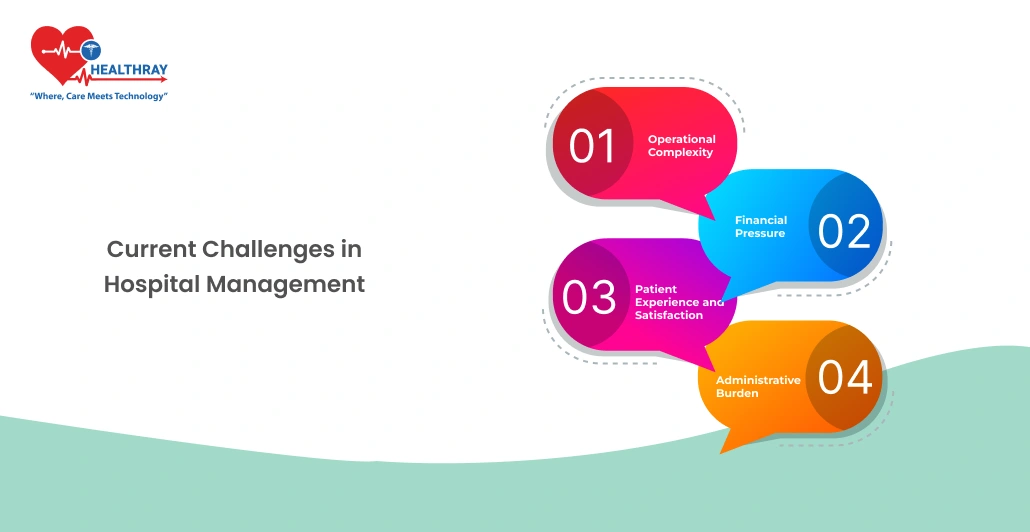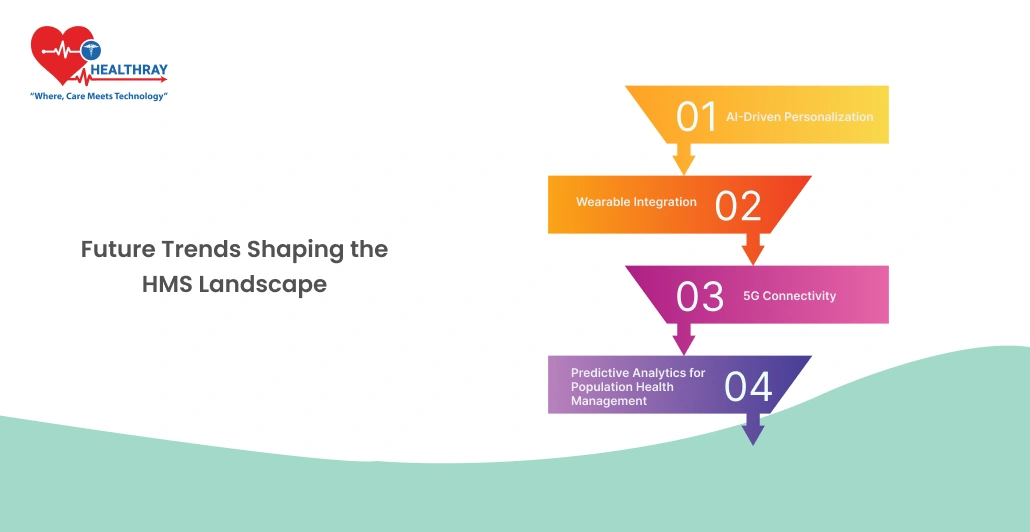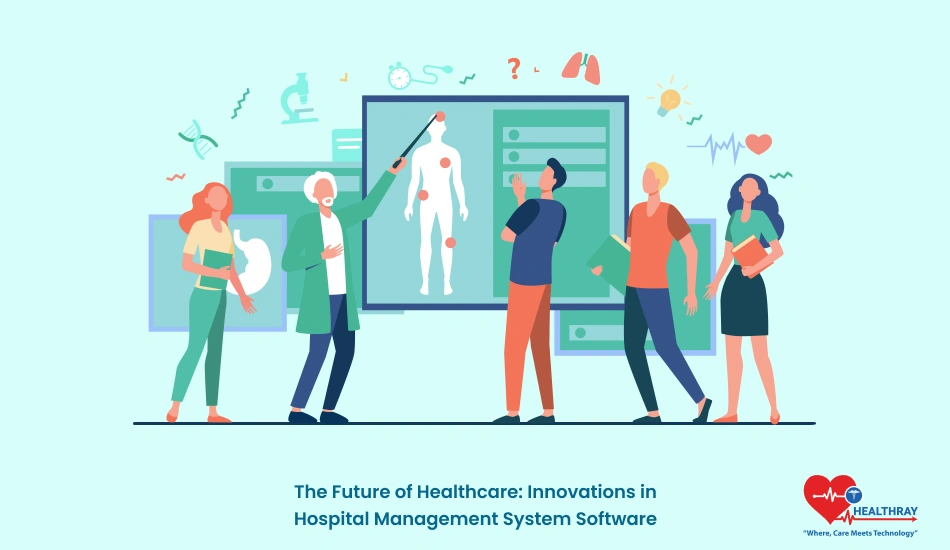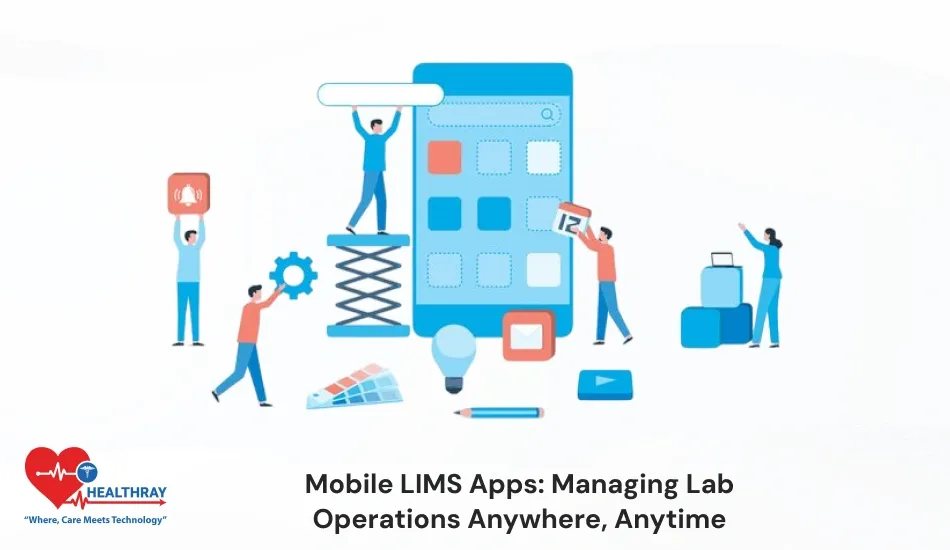Hospital management systems (HMS) are evolving rapidly in the present healthcare setting. Healthcare administrators and decision makers are keeping up-to-date on the HMS software developments because the patient-centered care, data security and efficient hospital operations have been in the rising demand. But precisely what is changing in these systems, and why should investors and leaders in the healthcare industry be interested, remains unclear.
Innovations in data integration, artificial intelligence, and patient engagement tools are not merely fads; they are fundamentally altering hospital operations. These technologies promise to optimize resource allocation, improve patient experiences, and streamline daily workflows. If healthcare executives understand theix respective innovations, these can inform well-considered decisions that contribute to strengthening the hospital’s financial position and overall future viability in an increasingly tech-driven sector.
This article dives into the most impactful innovations in the Hospital Management Software and their benefits, not just for hospital administrators but also for investors, trustees, and board members seeking sustainable growth and efficiency in healthcare facilities. Here’s what you need to know about the future of HMS and why it matters.
Current Challenges in Hospital Management

The healthcare industry has never been devoid of operational complexities. Nevertheless, in recent times hospitals have had to face the combined issue of a dramatic increase in demand. Across any aspect of comfortable and effortless patient care all the way to revenue goals, hospital administrators are challenged by a wide range of issues requiring it’s appropriate management and creative solutions. Here is a look at the most pressing issues:
Operational Complexity
Managing a hospital involves coordinating hundreds of moving parts comprising staff scheduling management and coordinative care process among the patients as well as coordination of logistics. Operating in such a system without the ideal system will very likely open up avenues for mistakes, delays, and miscommunication, with an ultimately negative consequence on result and patient satisfaction. In all the cases, the traditional way of achieving the same can appear insufficient; accordingly, intelligent systems with combined architectures that under which each department would belong are required.
Financial Pressure
As healthcare budgets get more and more squeezed and costs keep increasing more and more, financial strain on delivering care takes precedence. Every hospital is willing to cut costs by obtaining the highest income, waste reduction and collection and payment efficiency. Since coding continues to evolve with each subsequent year and with so much complexity within billing processes, errors creep through and then denied claims and lost income result. Ineffective management negatively affects a hospital’s bottom line, and simultaneously hampers reinvestment in infrastructure and upgrades to patient care technologies.
Patient Experience and Satisfaction
Today’s patients expect more from healthcare providers. They require a responsive and private journey to minimize waiting time, readily available information, and efficient service coordination. Nevertheless, manual or traditional systems typically become inefficiencies that can be directly detrimental to the patient experience. As such, there is now a great demand for solutions that can make care delivery better while making it more convenient for the patient.
Administrative Burden
Hospital workers continue to be swamped with clerical work, from electronic health records keeping to insurance billing and regulatory compliance. Such tasks take a long time and can often draw staff away from more critical work, such as patient care. Where regulatory demands are increasingly dynamic, hospital administrators need systems that are not just capable of dispensing these demands but also makes a substantial contribution to what is referred to as administrative burden on staff.
Key Innovations in Hospital Management System Software
Recent developments in Hospital Management System Software technologies are changing healthcare establishments. These advances range from AI-initiated information to secure data management toward more efficient, responsive, and patient-focused healthcare management. Let’s explore some of the top advancements reshaping hospital management :
AI and Machine Learning
Artificial intelligence (AI) and machine learning (ML) is transforming how hospitals deal with data and decision making. By using AI-based knowledge, hospitals are able to foresee patient requirements, enhance diagnosis, and even better control staff schedules. For instance, machine learning algorithms may process historical patient information to predict crowded times, in turn helping administrators manage resources more effectively. These technologies also support predictive analytics, enabling hospitals to predict possible health trends, prevent patient decline, and thus to better deliver a patient’s care.
Data Integration and Interoperability
Institutions create vast traffic of data from various departments, such as lab data, patient records, etc. Data integration and interoperability are critical to assembling this information into a unified, navigable system. With the help of modern hospital management software, data integration has become so straightforward that it no longer requires the manpower dedicated to manual data entry, and thereby the possibility of introducing error is drastically reduced. Due to improved data integration, clinicians have increased access to, for example, a patients record with all information available, allowing personalized diagnosis and treatment.
Telehealth Integration
Telehealth has also become an important element of contemporary medicine, not least with increases in virtual encounters and virtual care. Telehealth assessment integration is now common in new hospital management systems, and it is made possible for the clinician to schedule, perform, and document virtual visits on the core platform. This feature not only helps reduce patient wait times and improve access to care but also allows hospitals to offer continuous support to patients, regardless of their location. For hospital managers, this equates to better workflow and wider accessibility in terms of patient care.
Blockchain for Data Security
Patient data security is a primary issue in the healthcare, requiring the greatest security for the patient data. Blockchain technology, consisting of strong security features, is now a major weapon of management systems for hospitals (s). A decentralized platform of blockchain deepens the security of patient data and its immutability (which makes it tamper proof and hence builds patient confidence and warns against breaches). Blockchain further advances transparency and traceability, enabling hospitals to more confidently control and comply with data management, respectively.
Internet of Medical Things (IoMT)
Connected medical devices (or the Internet of Medical Things or IoMT) are enhancing the quality of patient monitoring and data. Devices, for instance, wearable health trackers and intelligent IV pumps, generate real-time patient data that can be wirelessly transmitted to the hospital management system in real-time. This ongoing continuous replication of data supports the ability of healthcare professionals to track patient health patterns more rapidly as well as the more efficient response to emergency situations. For administrators, IoMT represents fewer human error, more accurate data and a real-time understanding of hospital operations.
How to Evaluate and Choose the Right HMS Software
Choosing the proper hospital management system is an important decision that can influence the hospitals’ efficiency, quality of the care provided to patients as well as their financial status. Below are some important factors which health leaders should take into account when making decision about putative HMS software solutions.
Identify Key Features
Hospitals are distinct and many have similar needs, yet some fundamental aspects of good HMS are universal. These include patient scheduling, billing and revenue cycle management, electronic health records (EHR) integration, and data analytics. For administrators, tools with reporting dashboards analytical functionalities provide a better-informed decision making and performance management. By understanding which features are most relevant to your facility, you can narrow down vendors that can meet your needs.
Vendor Reputation and Support
Selecting a trustworthy vendor with a good history is essential. Analyse possible vendors’ track record, customer reviews and years spent in the health care field. A decent vendor should also provide continuous technical support with professional staff training materials. Especially relevant to system upgrades, troubleshooting, and onboarding are support functions as these can be challenging in a healthcare environment. Choosing a vendor with a good track record and sustained support can streamline time and avoid any interruptions.
Customization and Scalability
Hospitals have different sizes, specialties, and operational models and therefore it is crucial to select an HMS that is scalable to the needs of your station. A scalable system allows you to start with basic features and expand as the hospital grows or as additional needs arise. Customization is also of high importance, as it enables you to configure the software for individual workflows, personal preferences, and compliance rules. Selecting a flexible HMS can prevent the use of expensive upgrades in the future.
Compliance and Security Measures
Adherence to healthcare legislation, such as HIPAA in the U.S., is an absolute necessity for any hospital management system. Software must have built-in compliance functionality and security, as well as encryption, access controls and audit trails. These capabilities not only enable regulatory compliance but also safeguard patient data. Security breaches are expensive and damaging to a hospital’s reputation, and therefore securing systems should be a top priority.
Future Trends Shaping the HMS Landscape

The healthcare industry continues to evolve, and hospital management systems are no exception. Current trend is towards user-centric, more efficient and technology-enabled hospital management solutions. Following are some of the most exciting new facts that are driving HMS software design:.
AI-Personalisation
In hospital management schemes, an increasingly included component through AI-enabled applications has proven as a medium to achieve operational efficiency along with providing more specific patient care. It is well seen that very potential algorithms which would predict exactly what a patient will need today. It suggests treatment options or, for coordination with care processes also supports this idea. For example, an AI-based model could identify which of the patients have the highest risk of readmission and thus should be a great candidate for the preventive care plan, and therefore, it is improving the outcome and saving cost. So, this is some kind of personalization, too; both user satisfaction as well as hospital productivity will increase on this level of personalization.
Wearable Integration
Patient monitoring is changing thanks to wearable technology, which produces live data with patients in the presence of doctors. The gadget includes heart monitors, blood sensors, and movement sensors, integrated into the medical management system used in the hospitals. The inflow of the data ensures stream data, permitting clinicians to get things done at just the right moment with the ability of tracking a progression of a discharged patient. To the hospital CEOs, wearable integration offers increased data fidelity and a preventive management approach of patients, which will lead to improved health outcomes in the long run.
5G Connectivity
With the increase in 5G networks, hospitals are going to receive better and more stable data transfer for telemedicine, remote patient monitoring, and IoT devices. Increased connectivity enables the real-time exchange of bit streams between devices, and that leads to smoother information transfer in virtual examinations and a higher level of patients’ monitoring.
This also opens new doors in rural and underserved areas, where telehealth can help to close the gap in access to care.
Predictive Analytics for Population Health Management
Another good measure that can be useful for population health management is participatory predictive analytics. This allows hospitals to associate with general health patterns and take prevention measures early on in the development of potential health hazards. Predictive models highlight risks for health in certain clusters by which specific health interventions are pursued. For hospitals, this means a, reduction in, emergency readmissions, an increase in, preventive care, and a saving financially.
Conclusion
The development of HMS Software is going to be revolutionary because the latest technology is being brought to the center of healthcare provision. For healthcare CEOs, CFOs, and investors, these are not just tools but strategic assets that can be used to solve the growing need for patient service, operational efficiencies, and lowered cost across the system.
The data-driven features of the patient experience are not only workflow-efficient in the usage of artificial intelligence, data extraction, and security but also provide a platform for the hospitals to construct an agile and more personalized experience of the patients. These successes have been one hopeful route to sustainable economic expansion and funding for medical activities continuously.
Even the right choice of HMS software may eventually be that critical milestone toward making next generation hospitals and healthcare facilities work at an optimum level for their pursuit of operational excellence and quality care.
The administrators, board members, and investors will likely need to know and engage with these changes to inform the transition process and ensure action geared toward enhancing health care delivery and fiscal health.




